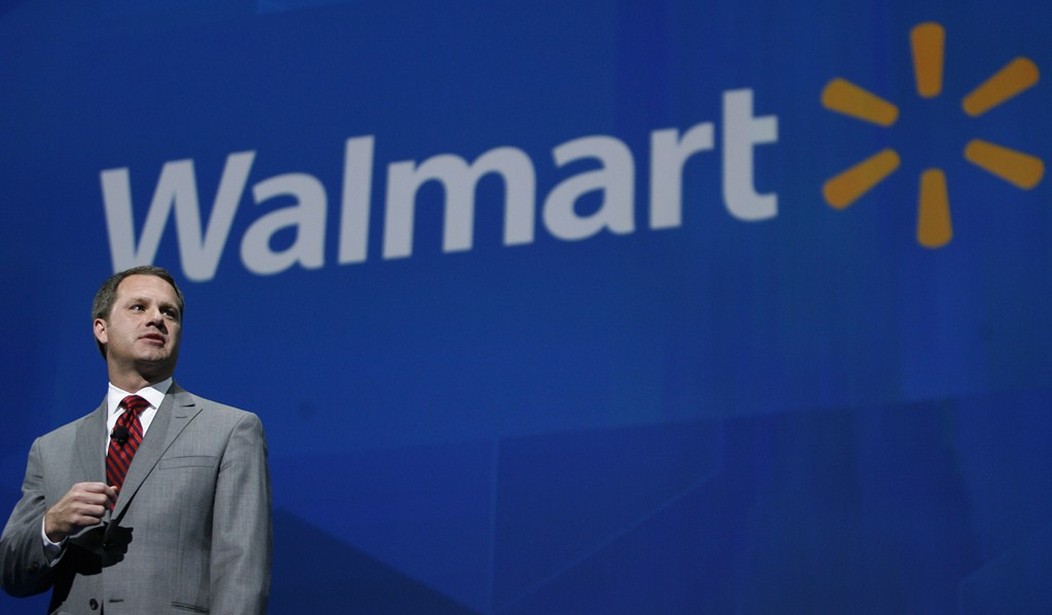Caring for the poor and downtrodden is central to most major religious faiths. For Christians, it is clear that Jesus was deeply concerned for the poor in his personal ministry on earth and in calling his followers to follow his example. The Proverbs tell us that in serving the poor, we lend to the Lord.
There is little debate that this is an end that we should all be working toward. There is, however, disagreement over the best means to achieve our stated end. How do we best help the poor in a way that elevates their inherent dignity as human beings? Can we mandate prosperity and human flourishing?
It would be nice to think that we could wave a magic wand that would eliminate poverty and the struggles that low-income workers endure: paying the rent on time, putting food on the table, and finding affordable childcare. In an effort to do this, the D.C. Council passed the Large Retailer Accountability Act this week. This will force “big box” retailers like Wal-Mart and Target to pay a minimum wage that is fifty percent higher than the D.C.-mandated minimum wage.
On its face, this seems like a plausible way to care for low-income and low-skilled workers who make up the demographics of minimum wage earners. We can make the argument that big-box retailers like Wal-Mart and Target “can afford it,” so why not ask them to pay more to support their employees? Wouldn’t this give their employees the assistance they need to escape the struggles of low-income?
Christians believe that we live in a fallen world which is dominated by scarcity. In this world, scarce resources have multiple and competing ends. We must find ways to allocate those scarce resources wisely and to contribute to the flourishing of mankind—this is what is means to be a good steward.
Recommended
Realizing that all resources are scarce helps us to understand why this policy, while well-intentioned, cannot help to free us from the reality of scarcity. If Wal-Mart is forced to pay its employees higher wages there will be an accompanying tradeoff. There is no free money. Those resources that they put into higher wages will be taken away from other things, like Wal-Mart’s ability to offer the lowest prices for groceries and produce.
Did you know that Wal-Mart is the largest grocery retailer in the country? Its size is precisely what allows it to compete to offer low prices on necessary items like groceries, produce, and household items. This is part of the reason the city of D.C. wanted Wal-Mart to open six stores.
Employees of Wal-Mart benefit in multiple ways when Wal-Mart opens stores in urban areas. The openings of these stores create more job opportunities for low-skilled workers. They also provide goods and services at low prices which is another benefit that particularly helps low-income, low-skilled workers.
According to this study by the Federal Reserve Bank of Cleveland, if we mandate higher wages in an effort to help lower income groups, we end up harming them. In this instance, according to the Washington Post, Wal-Mart will not open three of its scheduled stores in the D.C. area and is considering backing out of the other three under construction. Not having Wal-Mart in D.C. is clearly worse than having Wal-Mart there offering low priced goods and services and employing 1,800 employees.
Detrimental minimum wage raises have happened before. In 2007 when the minimum wage was raised, Chicken of the Sea International moved its operation from American Samoa to Lyon, Georgia resulting in a loss of 2,000 jobs in American Samoa. This resulted in Samoa petitioning the US government for twenty million dollars in appropriations for displaced Samoan workers.
Forcing these stores to pay higher wages means that they lose the ability to compete with other big-box retailers to offer the lowest prices. Competition among producers is what gives us goods and services at higher quality and lower prices. If we eliminate this competitive margin, we are actually harming the very people that we aim to serve.
There is another, longer-term factor at work here. When low-skilled workers get jobs they didn’t have before, especially at a large retailer, they get on-the-job training. This training over time increases their skills and enhances their productivity, allowing them to command higher wages in the long-run.
No one thinks that earning the minimum wage is sufficient for a life of prosperity. However, there is a path of personal development that one must follow to increase their skills which allows them to make greater and greater contributions of value in the workplace and earn higher wages.
The best thing we can do for the poor, low-skilled workers who have low levels of education is to provide them opportunities to start developing skills that make them more marketable. When big-box retailers enter urban areas, they do just that. They provide a starting place for people to better themselves and to serve the common good.
This is the story of the American experiment. We started as a nation of low-skilled workers and have created massive levels of wealth out of relatively little. We must ensure that we maintain an opportunity society so that those who start at the minimum wage don’t stay there, but rather they have a springboard for prosperity and flourishing.
























Join the conversation as a VIP Member